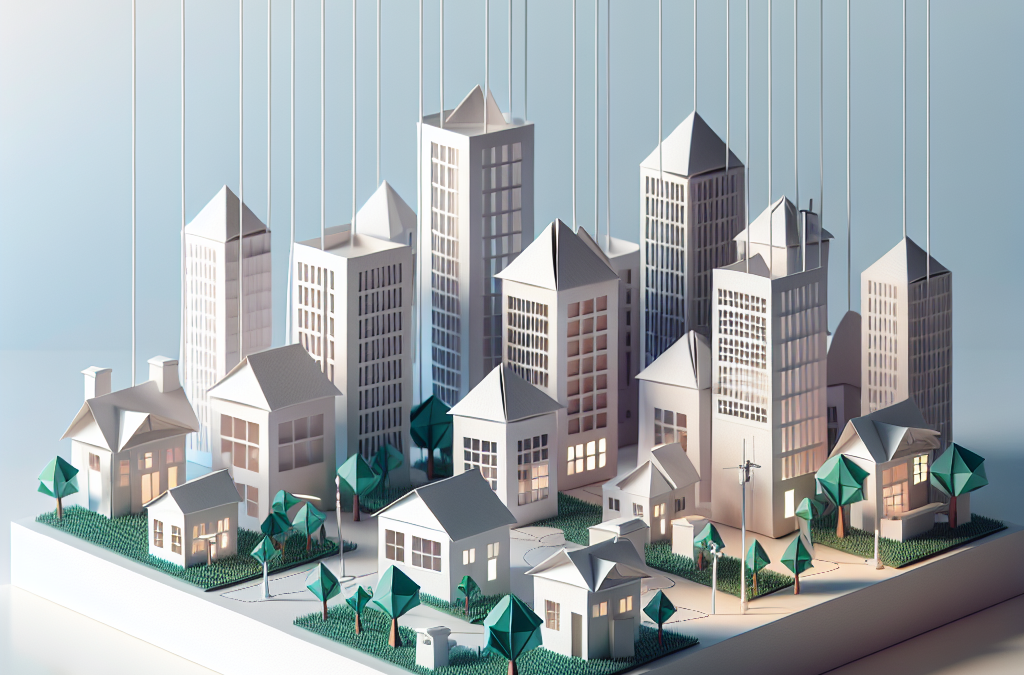Beware of Legalized Extortion
Welcome to the Real Estate Espresso Podcast, your morning shot of what’s new in the world of real estate investing. I’m your host, Victor Menasce. On today’s show, we’re discussing a specific type of lawyer who tends to work on contingency. This signifies that the client doesn’t pay any cash upfront; all the compensation is provided at the backend, with a division of the proceeds ensuing from the litigation.
These lawyers typically approach condo boards—usually without invitation—and offer to obtain them a settlement from the builder or developer for any defects. If they can prove that the builder intentionally concealed a defect, they could claim triple punitive damages. These sorts of cases can often be seen as legalized extortion. Construction defect attorneys are sometimes viewed as predators by developers due to the nature of their work, which typically involves identifying and pursuing claims against developers for alleged construction defects. Here are a few reasons why developers might see things this way.
Why Developers Might See Things This Way:
First, their litigation tactics are very aggressive. These defect cases can involve significant financial stakes, and lawyers use aggressive strategies to secure large settlements or judgments. They sometimes resort to class action lawsuits whereby an attorney might file a class action on behalf of multiple homeowners, increasing the pressure on the developer to settle. Secondly, these cases can cause reputational damage. High-profile cases can attract media attention, subsequently damaging the developer’s reputation and impacting future business opportunities. There can be negative perceptions, even if the claims are baseless. The mere association of a construction defect lawsuit can create a negative perception of the developer’s work—even if it’s unrelated to reality. Lastly, there’s the significant financial burden. The legal fees for defending such claim can stack up quickly. Sometimes, developers will simply settle because it’s cheaper to avoid prolonged litigation—even if the allegations lack merit.
The prominence of these types of lawsuits can lead to increased scrutiny from regulatory authorities. This could result in more thorough inspections and compliance requirements, as well as additional licensing requirements. Large scale developments that fall under this scrutiny can often affect later phases of a development, resulting in work stoppages that can impact project timelines and inflate costs. Resource allocation is such that developers might need to redirect resources to address the legal issue, thus hampering their ability to focus on current projects.
And while construction defect attorneys do play a vital role in safeguarding homeowners’ rights and ensuring construction standards are met, they’re often perceived as predatory. However, developers can take several proactive steps to protect themselves against this type of situation.
Proactive Measures for Developers:
Firstly, one of the protections is contractual. It’s mandatory to ensure that contracts with contractors, subcontractors, and clients are clear and that sufficient indemnity clauses are in place to protect against third-party claims. This also ensures that any legal costs are borne by the party responsible. Secondly, due diligence needs to be carried out. Contractors should be vetted through background checks, extending not just to contractors but subcontractors as well. It’s important to work only with those who have solid track records and good reputations. All parties should have adequate insurance coverage, including liability insurance, to cover potential claims. You also want to ensure regular inspections and documentation. Implement regular inspections and quality control throughout the construction process to identify and address issues early. More significantly, maintain detailed records of all communications, changes, inspections, and approvals as this documentation can be crucial in defending against a lawsuit. Misunderstandings often lead to defects, so maintain open and clear communication with all parties. Finally, ensure any changes orders are adequately documented and linked to the original contract through formal change orders. All parties must consent to the changes. You should employ state-of-the-art risk management and conduct regular risk assessments. Always have adequate contingency plans to handle unexpected events like delays or material shortages. Finally, consult with construction attorneys to ensure compliance with all relevant laws and regulations. Consider incorporating alternative dispute resolution methods, like mediation or arbitration, in all contracts to resolve disputes without going to court.
All these mitigation strategies are important, but they may still be insufficient to protect you. The only foolproof protection from a lawsuit is to eliminate the plaintiff, which is a structural solution. So, unless laws change dramatically, you’re not likely to see me building any condo buildings soon. Condos have become a major battleground for this kind of litigation. This isn’t to say that all of these buildings have serious construction flaws. A few might, but the vast majority do not. I have at least one architect who refuses to design a building if it’s going to be sold as a condo building. The risk of being sued is too high, and the cost of his error and omissions insurance is prohibitive. In fact, he can’t even find adequate coverage to manage the risk.
As developers, we transfer most of the risk onto the general contractor. We make sure there’s an indemnity clause for the construction manager, the project manager, and the developer. Therefore, be on the lookout for these trolls disguising themselves as construction defect lawyers. Have an exceptional rest of your day. Go make some great things happen. We’ll chat again tomorrow.
Stay connected and discover more about my work in real estate and by visiting and following me on various platforms:
Real Estate Espresso Podcast:
- 🎧 Spotify: The Real Estate Espresso Podcast
- 🌐 Website: www.victorjm.com
- 💼 LinkedIn: Victor Menasce
- 📺 YouTube: The Real Estate Espresso Podcast
- 📘 Facebook: www.facebook.com/realestateespresso
- 📧 Email: [email protected]
Y Street Capital:
- 🌐 Website: www.ystreetcapital.com
- 📘 Facebook: www.facebook.com/YStreetCapital
- 📸 Instagram: @ystreetcapital



